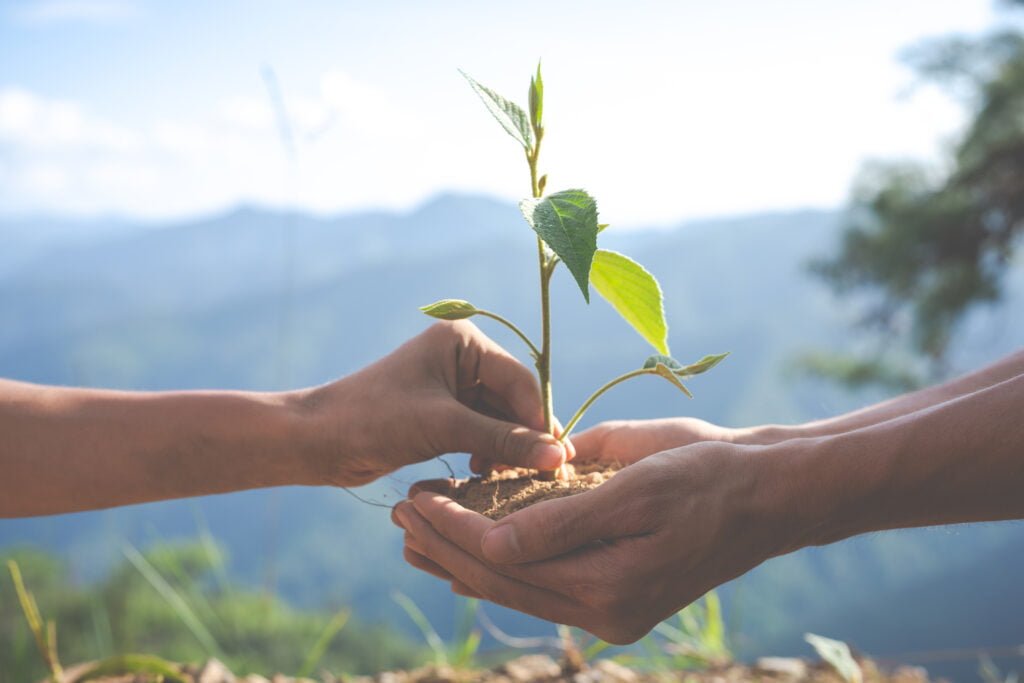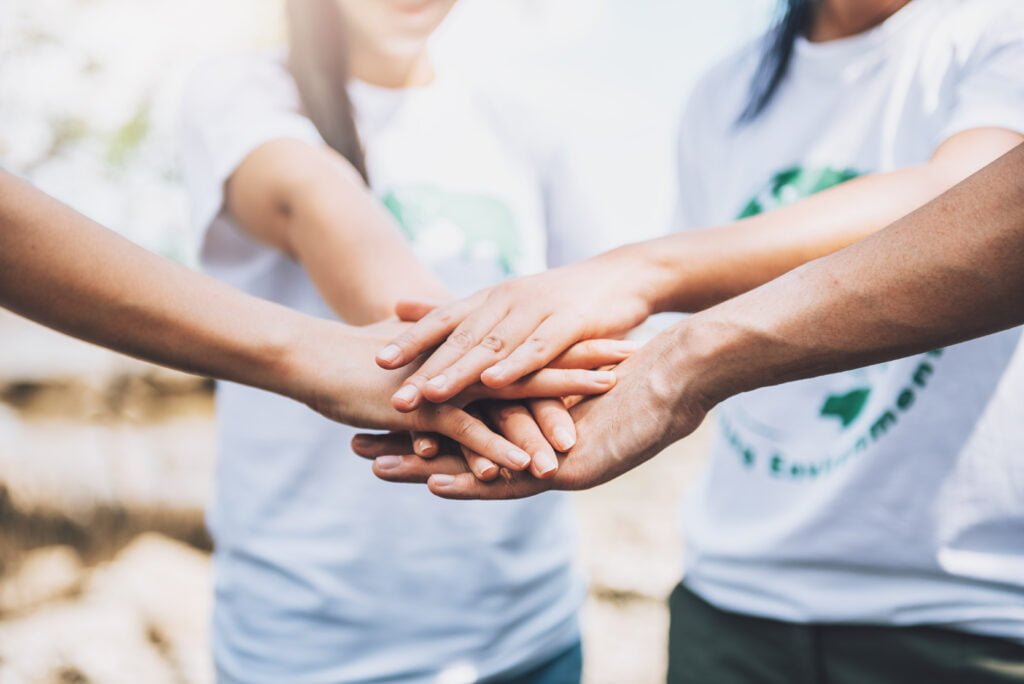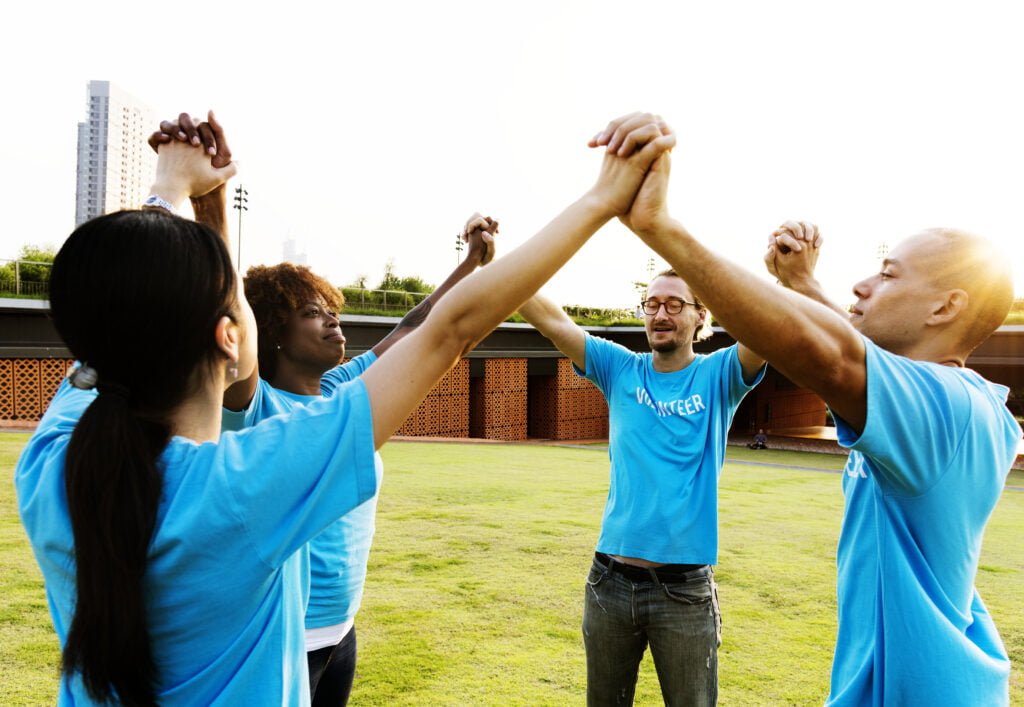In our demanding and often self-centred world, it’s easy to lose sight of the profound impact we can have on others—and on ourselves—through acts of service. Volunteer work and giving back to our communities aren’t just noble pursuits, they’re powerful catalysts for personal growth and self-love. This post explores how dedicating time and energy to helping others can transform your relationship with yourself, challenge negative self-perceptions, and cultivate a deeper sense of self-worth and purpose.
The Connection Between Service and Self-Worth
When we engage in volunteer work, we step outside of our usual routines and comfort zones. This shift in perspective often leads to surprising revelations about our own capabilities and worth. By helping others, we:
- Discover hidden strengths and talents
- Gain new skills and experiences
- Build meaningful connections with diverse groups of people
- Witness the direct impact of our efforts on others’ lives
These experiences combine to create a powerful antidote to low self-esteem and negative self-talk. As we see the positive changes we can bring about in the world, it becomes harder to dismiss our own value and capabilities.

Breaking Down Barriers to Self-Love
Our inner critic—that persistent voice of self-doubt, negativity and restrictions — often tells us we’re not good enough, smart enough, or worthy enough. This harsh self-judgment can create significant barriers to self-love and personal growth. Volunteer work challenges these negative beliefs in several ways:
- Provides tangible evidence of our positive impact
- Offers opportunities for growth and learning
- Exposes us to diverse perspectives and experiences
- Encourages us to focus on others rather than our perceived shortcomings
“The best way to find yourself is to lose yourself in the service of others.” – Mahatma Gandhi
This quote from Gandhi encapsulates the transformative power of service. By shifting our focus outward and immersing ourselves in helping others, we often stumble upon profound truths about our own nature and worth.
The Neuroscience of Altruism
The benefits of volunteering and giving back aren’t just philosophical or emotional—they’re backed by science. Research in neuroscience has shown that acts of kindness and altruism trigger the release of several important neurochemicals:
- Oxytocin – Often called the “love hormone” or “bonding hormone,” oxytocin promotes feelings of connection, trust, and empathy.
- Serotonin – This neurotransmitter plays a crucial role in mood regulation and feelings of well-being.
- Dopamine – Known as the “reward chemical,” dopamine creates feelings of pleasure and motivation.
The release of these chemicals can have profound effects on our mental and emotional state:
- Reduced stress and anxiety
- Improved mood and emotional resilience
- Enhanced feelings of social connection
- Increased sense of meaning and purpose
By engaging in regular volunteer work, we can create a positive feedback loop of neurochemical rewards that support our overall well-being and foster a more positive self-image.
Practical Steps to Get Started
If you’re new to volunteering or feeling unsure about how to begin, here are some practical steps to help you get started:
Identify causes that resonate with your values
- Make a list of issues you’re passionate about
- Research local organizations working in these areas
- Consider the skills or experiences you can offer
Start small with manageable commitments
- Begin with one-time events or short-term projects
- Gradually increase your involvement as you feel comfortable
- Be realistic about the time and energy you can dedicate
Reflect on your experiences regularly
- Keep a journal of your volunteer activities
- Note how these experiences make you feel
- Identify areas of personal growth or challenge
Celebrate your contributions, no matter how small
- Acknowledge the effort you’ve put in
- Recognize the ripple effects of your actions
- Share your experiences with friends and family
Remember, there’s no “right” way to volunteer. The key is to find opportunities that align with your interests and values, and that fit realistically into your life.

Overcoming Self-Doubt in Service
It’s common to feel inadequate or unprepared when starting volunteer work. You might worry that you don’t have the right skills, or that your contributions won’t be significant enough. Here are some strategies to overcome these doubts:
- Recognize that your presence and effort are valuable
- Focus on learning and growth rather than perfection
- Ask for guidance and support when needed
- Remember that every contribution, no matter how small, can make a difference
“Everybody can be great, because everybody can serve.” – Martin Luther King Jr.
This quote reminds us that service is not about being perfect or having extraordinary skills. It’s about showing up with an open heart and a willingness to help.
The Ripple Effect of Compassion
One of the most powerful aspects of volunteer work is its ability to create a ripple effect of compassion. When we extend kindness to others, we often become more compassionate towards ourselves. This cycle of empathy can lead to significant personal growth and improved self-esteem.
Consider the following ways this ripple effect manifests:
- Increased empathy – As we encounter diverse life experiences through volunteering, our capacity for empathy grows.
- Broader perspective – Exposure to different challenges and viewpoints helps us put our own struggles into perspective.
- Self-compassion – Practicing kindness towards others often translates into greater self-compassion.
- Interconnectedness – Volunteer work highlights our shared humanity and interconnectedness.
By nurturing this ripple effect, we create a positive cycle that benefits not only those we serve but also ourselves and our broader communities.
Balancing Giving and Self-Care
While service is undoubtedly important, it’s crucial to maintain healthy boundaries and practice self-care. Burnout is a real risk in volunteer work, and it can negatively impact both your well-being and your ability to help others effectively.
Here are some strategies for maintaining balance:
- Set clear boundaries for your time and energy
- Practice regular self-care routines
- Learn to say no when necessary
- Recognize signs of burnout and take breaks when needed
“Self-care is not selfish. You cannot serve from an empty vessel.” – Eleanor Brown
This quote serves as an important reminder that taking care of ourselves is not just permissible—it’s essential for sustainable service and personal growth.

Measuring Impact Beyond Numbers
In our results-driven society, it’s easy to fall into the trap of measuring the value of our volunteer work solely by quantifiable metrics. While these can be important, it’s crucial to recognize and appreciate the less tangible impacts of service:
- Personal connections formed
- Moments of shared humanity
- Small acts of kindness that brighten someone’s day
- Personal growth and self-discovery
Remember that your impact often extends far beyond what you can see or measure. Trust in the value of your presence and efforts, even when the results aren’t immediately apparent.
Integrating Service into Daily Life
Volunteer work doesn’t always have to involve formal commitments or structured programs. Look for ways to incorporate giving back into your daily routine:
- Practice random acts of kindness
- Offer help to neighbors or community members
- Support local businesses and initiatives
- Share your skills or knowledge informally
These small, consistent acts of service can have a cumulative effect on your sense of self-worth and connection to your community.
Challenging the Ego and Inner Critic
As you embark on your journey of service and self-love, be prepared for resistance from your ego and inner critic. These aspects of our psyche often resist change and growth, even when it’s positive. You might encounter thoughts like:
- “Who do you think you are? You can’t really make a difference.”
- “You’re just doing this to feel good about yourself. It’s selfish.”
- “You’re not qualified/experienced/good enough to help.”
Recognize these thoughts for what they are: fear-based attempts to keep you in your comfort zone. Instead of fighting or suppressing them, try acknowledging them with compassion and then gently redirecting your focus to the task at hand.
The Transformative Power of Gratitude
Volunteer work often cultivates a deep sense of gratitude—both for the opportunity to serve and for the blessings in our own lives. This gratitude can be a powerful force for fostering self-love and contentment.
Consider starting a gratitude practice alongside your volunteer work:
- Keep a gratitude journal
- Share your appreciation with others
- Reflect on moments of connection and growth in your service
As you cultivate gratitude, you may find that your perspective on yourself and your life begins to shift in positive ways.
Overcoming Obstacles to Volunteering
Despite the best intentions, various obstacles can arise that make it challenging to engage in volunteer work. Here are some common hurdles and strategies to overcome them:
Time constraints
- Look for flexible or one-time volunteer opportunities
- Integrate small acts of service into your daily routine
Financial limitations
- Focus on opportunities that don’t require financial investment
- Consider skills-based volunteering that utilizes your existing talents
Physical limitations
- Explore virtual or remote volunteering options
- Look for roles that accommodate your specific needs
Lack of experience
- Start with entry-level positions or training programs
- Be open about your desire to learn and grow
Remember, there’s no “perfect” way to volunteer. The key is to find opportunities that work for your unique situation and constraints.
The Role of Community in Self-Love
While volunteer work can be a deeply personal journey, it’s important to recognize the role that community plays in fostering self-love. Engaging in service often connects us with like-minded individuals who share our values and passions. These connections can provide:
- Support and encouragement
- Opportunities for collaboration and learning
- A sense of belonging and purpose
- Mirrors that reflect our positive qualities back to us
By cultivating a community through volunteer work, we create a supportive environment that nurtures our growth and self-acceptance.

Reflection and Integration
To fully reap the benefits of volunteer work for self-love, it’s important to regularly reflect on your experiences and integrate the insights you gain. Consider the following practices:
- Journaling about your volunteer experiences
- Discussing your insights with trusted friends or a therapist
- Setting intentions for how you want to grow through your service
- Regularly reassessing your volunteer commitments to ensure they align with your values and goals
Through consistent reflection and integration, you can deepen the impact of your volunteer work on your journey of self-love and personal growth.
Embracing Imperfection in Service
One of the most valuable lessons we can learn through volunteer work is the beauty of imperfection. When we serve others, we often encounter situations that don’t go as planned or where our efforts fall short of our ideals. These moments, while challenging, offer rich opportunities for growth and self-acceptance.
By embracing imperfection in our service, we:
- Learn to value effort and intention over perfection
- Develop resilience and adaptability
- Practice self-compassion in the face of perceived failures
- Model authentic, human-centred service for others
Remember, the goal of volunteer work is not to be perfect but to show up with an open heart and a willingness to help.
The Ongoing Journey of Self-Love Through Service
Fostering self-love through volunteer work and giving back is not a destination but an ongoing journey. As you continue on this path, you may find that your relationship with yourself, others, and the world around you evolves in profound and unexpected ways.
Embrace this journey with an open heart and mind. Allow yourself to be surprised, challenged, and transformed by your experiences of service. And most importantly, be patient and kind to yourself as you navigate this path of growth and self-discovery.
Remember, every act of service, no matter how small, has the potential to create positive change—both in the world and within yourself. By dedicating time and energy to helping others, you’re not just making a difference in their lives; you’re nurturing a deeper, more compassionate relationship with yourself.
Your Next Steps
If you’re feeling inspired to explore how volunteer work can support your journey of self-love and personal growth, here are some next steps to consider:
- Research local volunteer opportunities that align with your interests and values
- Start a gratitude and reflection journal to document your experiences
- Reach out to friends or community members who are active in volunteer work for advice and support
- Set an intention for how you’d like to incorporate service into your life in the coming weeks or months
And if you’d like personalized guidance on integrating volunteer work into your journey of self-love and personal growth, I’m here to help.
Ready to Deepen Your Journey?
As a spiritual and mindfulness coach, I offer individual sessions designed to support you in harnessing the transformative power of service for personal growth and self-love. Together, we can:
- Explore how volunteer work can address specific areas of self-doubt or low self-esteem
- Develop strategies for overcoming obstacles to service
- Create a personalized plan for integrating meaningful volunteer work into your life
- Provide ongoing support and guidance as you navigate this journey
To learn more about how individual coaching can support your path of self-love through service, click the button below, to schedule a consultation. Let’s work together to unlock the profound potential for growth and self-discovery that lies within the act of giving back.
Remember, the journey to self-love is unique for everyone, but you don’t have to walk it alone. Whether through volunteer work, personal reflection, or guided support, every step you take towards self-acceptance and compassion is valuable. Embrace the journey, and trust in your capacity for growth and love.




